The Cameroonian filmmaker was presenting his film The Planter’s Plantation in the official competition at the Fespaco 2023. He was invited, with his actresses, to speak in English about his film for the press and the professionals the next day during a Q&A. Light summary (Translation into French to read here).
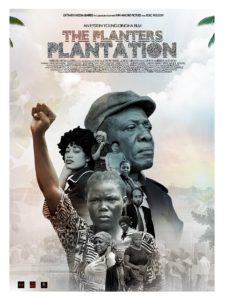 Annick Kandolo: The Planter’s Plantation is a fiction film in competition directed by Eystein Dingha Young, a Cameroonian actor, scriptwriter and director. He wrote and directed shorts films and docudramas. He was awarded as actor in Ghana and in Cameroun. His film The Planter’s Plantation, shot in Cameroun, takes place in the sixties in West Africa. It portrays the fight of a young woman against her family but also against her society to preserve the legacy from her deceased father. It is a dancing film, with very rythmic music, in which we find the musical Cameroun that we love. Is it a musical film or a musical comedy?
Annick Kandolo: The Planter’s Plantation is a fiction film in competition directed by Eystein Dingha Young, a Cameroonian actor, scriptwriter and director. He wrote and directed shorts films and docudramas. He was awarded as actor in Ghana and in Cameroun. His film The Planter’s Plantation, shot in Cameroun, takes place in the sixties in West Africa. It portrays the fight of a young woman against her family but also against her society to preserve the legacy from her deceased father. It is a dancing film, with very rythmic music, in which we find the musical Cameroun that we love. Is it a musical film or a musical comedy?
Eystein Dingha Young: It is a fiction and musical film that explores many genres, giving a bleak style to the story I tried to tell. For those who watched the film, you already know it has a tragical ending. There are a lot of tragedies in the film due to the stories we are trying to tell. The Planter’s Plantation is an allegory of new-colonialism. It is a very bleak story in which we tried to insert things that offer a lighter mood. Then music makes sense, absolutely. Indeed, music will take you on an emotional journey and connect you to Africans. The foundation of our nations was created with music. We have the « Rally song » that we sing to celebrate our nationalism, our countries, our identity. So we used music to represent all this and also to give a brighter side to the movie.
Madina Diallo: In The Planter’s Plantation you allow us to be inside the film. However, there is a scene where the camera doesn’t get through the window to allow us to listen to the main actress. Why?
Eystein Dingha Young: I choose to leave the actress at a far distance in order to make her completely lost but also to let the audience feel lost. I wanted my audience to be inside the story so much that you had to connect with her, feel lost like her so you would want to help her. Keeping her at a far distance reinforces the fact that she is really alone and has no connection with you. In the end you are in a crisis because you could have helped her but you didn’t. It is a neo-colonialism issue. Could we have helped her? Could we have helped Thomas Sankara or Felix Moumié? All these people that fought for us, for the Independence but who were killed by external forces. It is giving us a reflection on what we did wrong and could be fix to have a better Africa.
Question of the audience: Does Cameroonian music have anything to do with Zulu music of South Africa?
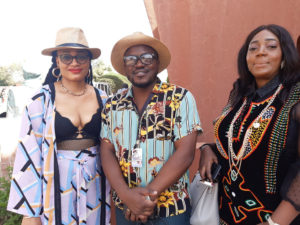
Stéphanie Tum, Eystein Dingha Young and Irène Nangi at Fespaco 2023
Eystein Dingha Young: Cameroun has an important musical background. We have the Makossa and other genres of music. But what makes our music sounds good are its origins. Our clans and tribes have similarities with the Bantus and semi-Bantus peoples. Bantus migrated throughout Africa, all the way to South Africa. Our culture has passed through this people. This culture has created a mix with other cultures. Thanks to this mix, every culture in Africa is linked from one country to another. Then, yes, we can say that our music in Cameroon is linked to the one in South Africa.
Question: We talk about these murders (Sankara, Moumié…) related to the fight for the Independence. Is it the same situation in Anglophone countries? Have any leader been murdered?
Eystein Dingha Young: What you just said is exactly what the movie is about. The film doesn’t say directly what’s happening. Our protagonists are the African leaders who have been killed because of their resistance. They were warned that Independence was given with the right hand and taken away with the left one. The film ends with the daughter of a colonialist saying « we are back in business ». This « business » is a business of new-colonialism which comes to us through rules, the currency (franc CFA), the Francophonie, etc.
Cameroun is currently passing through a crisis where the Anglophone minority create movements for independence. They want to be separated from the French majority. In 1961, Cameroun was divided between France and Great-Britain, and the French community was dominating the English one. This created agitations and almost led to a civil war. Now, for the last seven years the Anglophone area remain unstable. Before the coming of France and Great Britain, we were one culture, one country. These languages separated us. Now there are families fighting against each other’s, manipulated by another source. We know the origin of the problem in Cameroon: there is an external intervention somewhere that pushes these things to happen. We forget that, initially, we are Cameroonians, Bantus or semi-Bantus, with the same culture, ethnicity and language: blackness. Languages have come in the middle of it and now separate us. In Nigeria for example, it deals with ethnic division. Almost the same thing in Ghana.
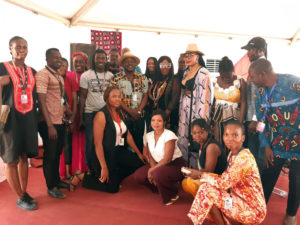 We can overthrow the new colonialism. After watching the film, I wanted us to reflect on what it means to us as tribes, countries, continent. A group of people sat down have drawn the contours of our countries. But blackness makes us as people. Now I need a visa to come to Burkina Faso while I am in the same continent. It restricts us to collaborate effectively.
We can overthrow the new colonialism. After watching the film, I wanted us to reflect on what it means to us as tribes, countries, continent. A group of people sat down have drawn the contours of our countries. But blackness makes us as people. Now I need a visa to come to Burkina Faso while I am in the same continent. It restricts us to collaborate effectively.
So The Planter’s Plantation is a call to reflect and realize on what we can do as continent to overthrow the neo-colonialism and give African black people a chance. »
Question: Are you singers or did you learn the chant to enter this musical universe? Or perhaps it was instinctive? »
Stéphanie Tum: No, we are not singers. We grew up with songs in our culture. During celebrations, bereavements and others situations, chants are used. That is what the film tries to show. We used chants to make things easier, more tolerable. Most of the chants of the film are songs written for the film that we had to learn.
Madina Diallo: Why did you choose to let us wander before focusing on an actor, here the actress?
Eystein Dingha Young: While doing this film I didn’t wanted to tell another story with protagonists and just introduce them. I wanted to tell a bigger story. The Planter’s Plantation tells the story of new-colonialism in Africa. At the beginning I was trying to present this Africa. Then for me, the protagonists could have been anyone. I didn’t follow lines, rules, norms, etc. I just went « freestyle » because I wanted to transmit the message, the story. Even in our society good people suffer, that is also what I wanted to show in the film. Actual films are lies: if you don’t work, you will not succeed. In Africa magic doesn’t happen. The people in the movie are the real protagonists. Enanga is just a symbol, the voice of these people because she is also a person in the plantation. She became the force of this people. The Planter’s Plantation is a non-conformist movie and have a message that we have to tell by force: let’s just be real, break the rules and have a conversation/reflection.
Question: Is the death of our heroes a foregone conclusion in Africa ? Is it possible for them to stay alive to see the achievements of their fights? »
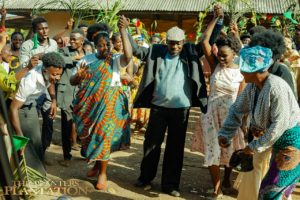 Eystein Dingha Young: For me, the main point in The Planter’s Plantation was the origin of the issue: the families. These families fighting between each other gave a chance to new-colonialism to exist and thrive. For me, the question shouldn’t be about what we can do to stop it. Do the coup-d’états that occur every day are guided by the right opinions or is it just selfishness? We do not want these persons at the head of power so we make a coup-d’état. You are a hero but are you doing the right things?
Eystein Dingha Young: For me, the main point in The Planter’s Plantation was the origin of the issue: the families. These families fighting between each other gave a chance to new-colonialism to exist and thrive. For me, the question shouldn’t be about what we can do to stop it. Do the coup-d’états that occur every day are guided by the right opinions or is it just selfishness? We do not want these persons at the head of power so we make a coup-d’état. You are a hero but are you doing the right things?
Finally, the problem of Africa is more us than the external intervention. The external intervention just fits with what we offer. The question should be a reflection on us, Africa. We have to rise and accept the question. Our heroes do not have to die. Paradoxically, we let them a chance to be killed: Our people are influenced by external interventions, then turned over against our heroes and finally killed them. »
Irene Nangi: We are all heroes. It begins with us. We have to do our hero duty. If you are doing your job, we’ll all live for each other. The external problems belong to them. We have to educate the incoming generations: love is the only message.
Eystein Dingha Young: It is a reality that touches us personally. We are coming from a country that is divided. It is said by medias that Anglophones want to separate Cameroun into two parts and destroy its integrity. These newspapers are passing the wrong information to the French side of Cameroun. And that’s why our heroes are being killed. We have to help each other. The USA have brought their heroes to life through cinema and advertising. These heroes fought against the British Crown, then the USA became independent and built themselves. I wish to have happy endings in Africa. Our heroes do not have to die, they can have a happy ending. »
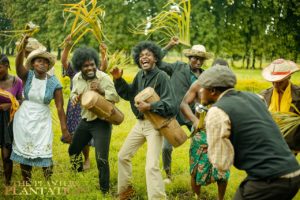 A producer: I think we have to use cinema to erase this image of us. If our heroes end up dying every time, people will think that there is no fight. With such a weapon (cinema) we can make a positive advertising. Nowadays we are able to deliver something good.
A producer: I think we have to use cinema to erase this image of us. If our heroes end up dying every time, people will think that there is no fight. With such a weapon (cinema) we can make a positive advertising. Nowadays we are able to deliver something good.
Another producer from Ghana: I prefer to remain realist. We are selling that dream that these heroes are fighting for us and succeeding. But it is not our reality in Africa. We have to show the truth, what happen to these people. This is not a Hollywood movie; they do not succeed every time. This is reality.
Eystein Dingha Young: I am a Panafricanist. I do not want to change the story of Africa. I want to speak about migration, poverty, etc. However, I also want Africa to be shown as a continent with abilities because I know we have the power. As filmmaker I want changes for Africa. I want to show the reality. We need to operate our potential. The whole world must see our film to understand.
Irene Nangi: We have to teach our next generations that our heroes do not have to die. This is the role of cinema: convey the image of Africa. Both must be done. Some producers must show the reality as it is because we have to reflect on it. But we also need some producers that allow us to project ourselves, to show us that we are capable of great things. We have to solve our problems and stop saying that they are external.
Eystein Dingha Young: The Planter’s Plantation is not a film to down Africa. We have to tell our story ourselves. This film is set in the past (1961) where the roots of our problem are. I want us to get back, look at what we did wrong and fix it. The change has to come.
Question: Did you get any backing from sponsors for the production? »
Eystein Dingha Young: We didn’t have the opportunities to have backing for Anglophone films. My co-producer and I funded the film from our own pocket. We do not have any backing. It was not easy to fund the film due to everything that compose it. We hope to have backing in the future!
Transcription by Daniel Olivier
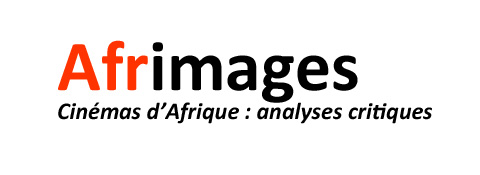

Trackbacks/Pingbacks